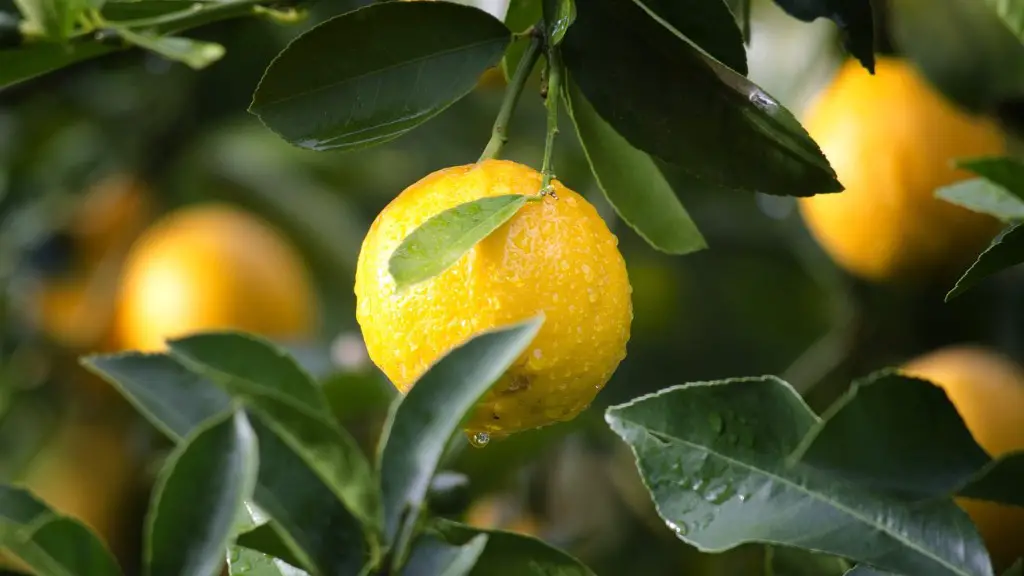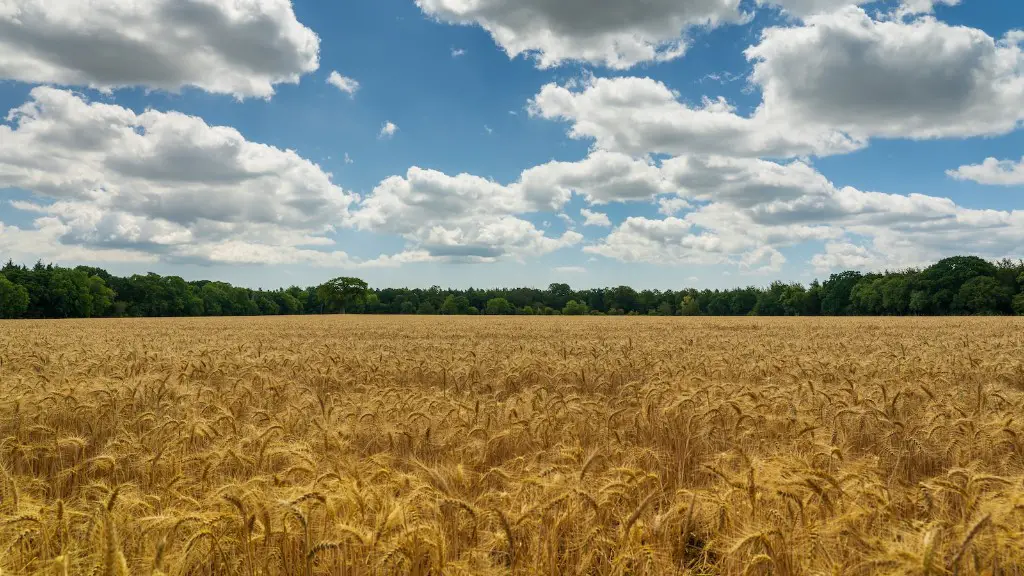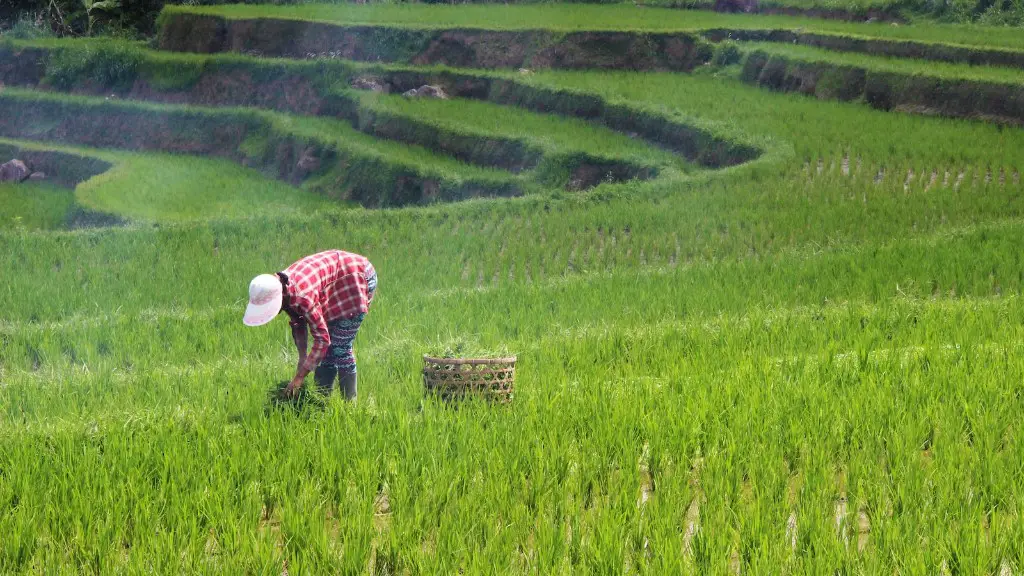A career as an agricultural scientist requires a deep understanding of plant and soil science, as well as a passion for working with farmers and other members of the agricultural industry. Agricultural scientists typically have a bachelor’s degree in agricultural science or a related field. Many agricultural scientists also have a master’s degree or doctorate.
There is no one-size-fits-all answer to this question, as the best way to becoming an agriculture scientist may vary depending on your qualifications and experience. However, some tips on becoming an agriculture scientist may include studying agricultural science at university, undertaking research in the field of agriculture, and working in an agricultural laboratory or field.
How many years of college do you need to be an agricultural scientist?
This is a roadmap for completing the degree program in four years.
Agricultural scientists play a vital role in ensuring that our food supply is safe and plentiful. They conduct research on all aspects of plant and animal life, and the relationships of these organisms to their environment. This research helps to increase crop and animal yields, and improve the environment. Agricultural scientists are dedicated to ensuring that our food supply is plentiful and nutritious.
Is agricultural science a good major
If you’re thinking about pursuing a career in agriculture, a degree in agriculture can definitely be beneficial. While you don’t necessarily need a degree to get many jobs in agriculture, having one can help you stand out and may open up other opportunities in the industry.
Food scientists typically need at least a bachelor’s degree in food science, although some jobs may require a graduate degree. Food science programs are offered at many colleges and universities, and usually include both classroom and laboratory work. Students in these programs take courses in food chemistry, food safety, nutrition, and food processing and packaging.
Is agricultural science worth it?
If you go through an agricultural sciences degree, you will have many career opportunities available to you. You can work in food production, agronomy, biotechnology, or livestock science. Agricultural sciences is an exciting field to work in, and you will be able to make a difference in the world.
Zandberg is right – both Agricultural Sciences and Agricultural Management Practices require dedicated effort to complete successfully. In Agricultural Sciences, students will need to learn about a wide range of topics, from plant biology to soils and irrigation. Agricultural Management Practices, on the other hand, focuses on the business side of agriculture, teaching students about marketing, finance and farm management. Both subjects are essential for anyone wanting to work in the agricultural industry, so make sure you’re prepared to put in the hard work if you’re planning on studying either of them!
What is the highest paying job in agriculture?
There are a few different types of agriculture jobs that are known for being high paying. Typically, these are jobs that require a high level of experience and education. Agricultural engineers, for example, design machines and equipment to be used on farms. Agronomists conduct research on crops and soil science. Agricultural food scientists develop new ways to process and store food. Veterinarians provide medical care for animals, and winemakers produce wine. Farm managers oversee the operations of a farm, and agricultural sales representatives sell products and services to farmers.
A bachelor’s degree in agriculture or a related field is typically needed for a soil and plant scientist. Undergraduate coursework typically includes biology, chemistry, botany, and plant conservation.
What is the best career in agriculture
There are many top careers in agriculture that are essential to the industry. Agricultural engineers work to improve the efficiency of crop production and management. They may also develop new technologies to help farmers. Agricultural economists work to understand the market trends and forces that affect agriculture. Farm managers are responsible for the day-to-day operations of a farm. Soil and plant scientists work to improve the quality of soil and to develop new crop varieties. Conservation planners develop plans to protect natural resources and to improve the sustainability of agriculture. Commercial horticulturalists produce and sell plants and flowers. Agricultural salespeople work to sell agricultural products and services.
Graduating college is an important step in achieving your career goals, but it’s not the only way to achieve them. You can also complete the courses in crop science or biology and look for cooperative positions. Working your way up to a manager position is a great way to gain experience and knowledge in the field. In high school, take agriculture classes and gain experience working with crops. This will give you a head start on your career and help you decide if this is the right field for you.
Do you need math for agricultural science?
If you’re interested in studying a particular BSc programme, it’s likely that you’ll need to have achieved a higher performance level in Mathematics. This is because both Life Sciences and Physical Science will be required for admission to most BSc programmes. However, there are some programmes where you’ll only need to have studied either Life Sciences or Physical Science. Therefore, it’s important that you check the entry requirements for the programme you’re interested in before applying.
There is a lot of important work that goes into keeping the agricultural industry running smoothly. From developing new irrigation strategies to caring for farm animals, there are a variety of positions available in this field. And, the best part is, many of these jobs come with a very competitive salary. In fact, some of the best agriculture jobs can pay up to $100,000 per year. So, if you’re looking for a challenging and rewarding career, consider pursuing a job in agriculture.
Are food scientists paid well
The positions in the food science are quite good and the earnings are quite above the national average. The average person in this field makes about $73,500 per year. However, the top earners make much more than that. They make over $125,000 annually. So, if you are looking for a good paying job, then you should definitely consider a career in food science.
In the United States, food scientists make an average of $74,345 per year, or $3574 per hour. On the lower end of the spectrum, the bottom 10% of food scientists make roughly $45,000 per year, while the top 10% make $121,000.
Is food science a stressful job?
The food industry can be very challenging, depending on the profession. I’ve noticed that company culture is one of the most important factors in the food industry. Because in the food industry, you have to work with so many groups, you are dependent entirely on external factors.
The average placement package for fresh graduates of PhD Agronomy Courses usually ranges between INR 2,00,000 and INR 10,00,000. With the recent increase in the demand for agriculture and agronomy graduates, this trend is expected to continue in the future.
Is agriculture a good career in USA
There are many good high-potential jobs available for agriculture graduates at food processing companies. As an agricultural consultant, you can provide valuable insights and assistance to these businesses. Other roles you can access are farm manager, soil scientist, agricultural inspector, etc. With the right skills and experience, you can definitely find a well-paying job in this field.
The agricultural scientists collect and analyse data and samples of produce, feed, soil and other factors affecting production. They advise farmers and farm managers on techniques for improving the production of crops and livestock.
Conclusion
There is no one-size-fits-all answer to this question, as the path to becoming an agriculture scientist will vary depending on your educational background and professional experiences. However, some tips that may be helpful include: obtaining a degree in agriculture or a related field; conducting research in agriculture and related disciplines; and working in the agriculture industry in a research or extension capacity.
To become an agriculture scientist, you will need to have a passion for the subject matter and a willingness to dedicate yourself to learning about it. You should also have strong critical thinking and problem-solving skills. A degree in agriculture science from an accredited college or university is typically required. Research experience is also important, as is the ability to effectively communicate your findings to others.





